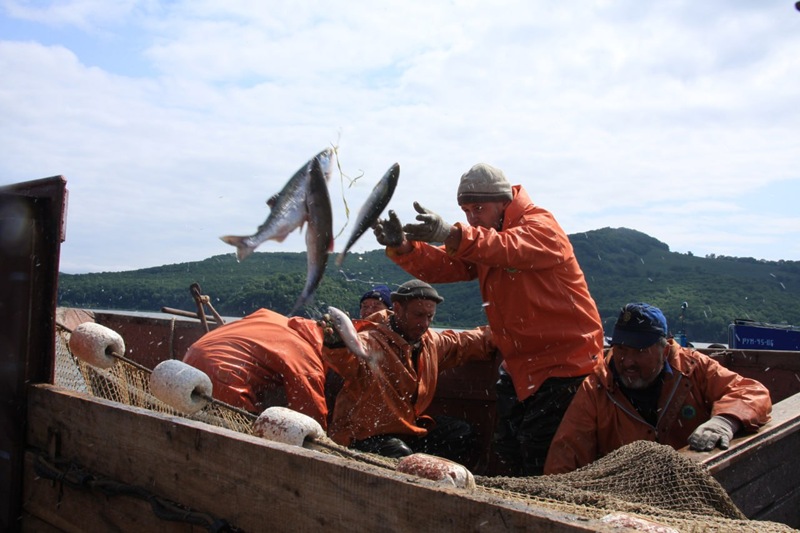Yesterday’s meeting of the commission for regulating the catch of anadromous fish species in the Kamchatka Territory brought an unexpected decision that caused serious concerns among representatives of indigenous peoples. We are talking about the so–called “passing days” – periods when commercial fishing is completely prohibited to ensure the unhindered passage of salmon to spawning grounds.

Initially, it was supposed to introduce a strict schedule: two days of a weekly ban on offshore fishing areas of the Kamchatka Gulf throughout Putin, as well as an additional six days of complete “rest” for fish from June 16 to June 30. Such measures are designed to promote the conservation and reproduction of valuable fish species, primarily chinook and sockeye salmon.
However, citing an approaching storm that could interfere with fishing on the permitted days, the majority of the commission members voted to temporarily lift these restrictions. This decision opens up the possibility for fishermen to catch fish without weekly breaks and without observing the previously planned “days of silence” at the end of June.
The only one who spoke out categorically against such a step was Andrey Metelitsa, who represents the interests of the indigenous peoples of the North, Siberia and the Far East (KMNS) and heads their regional association. His voice remained in the minority, but his arguments deserve close attention.
Mr. Metelitsa pointed out the extremely alarming situation with chinook and sockeye salmon approaches in the Ust-Kamchatsky region. According to him, the number of fish going to spawn is already causing serious concerns. The cancellation of the “passing days”, in his opinion, will worsen this problem, leading to the capture of a significant part of the already small herd. As a result, spawning grounds may remain unfilled, which will inevitably affect the population in subsequent years and affect the traditional way of life of the indigenous people, for whom fish is the basis of existence.
Nevertheless, the decision to cancel the “passing days” was made. This sets a precedent when short-term considerations related to weather conditions and possible economic losses to fishermen are put above the long-term interests of preserving biological resources and protecting the rights of Kamchatka’s indigenous peoples.